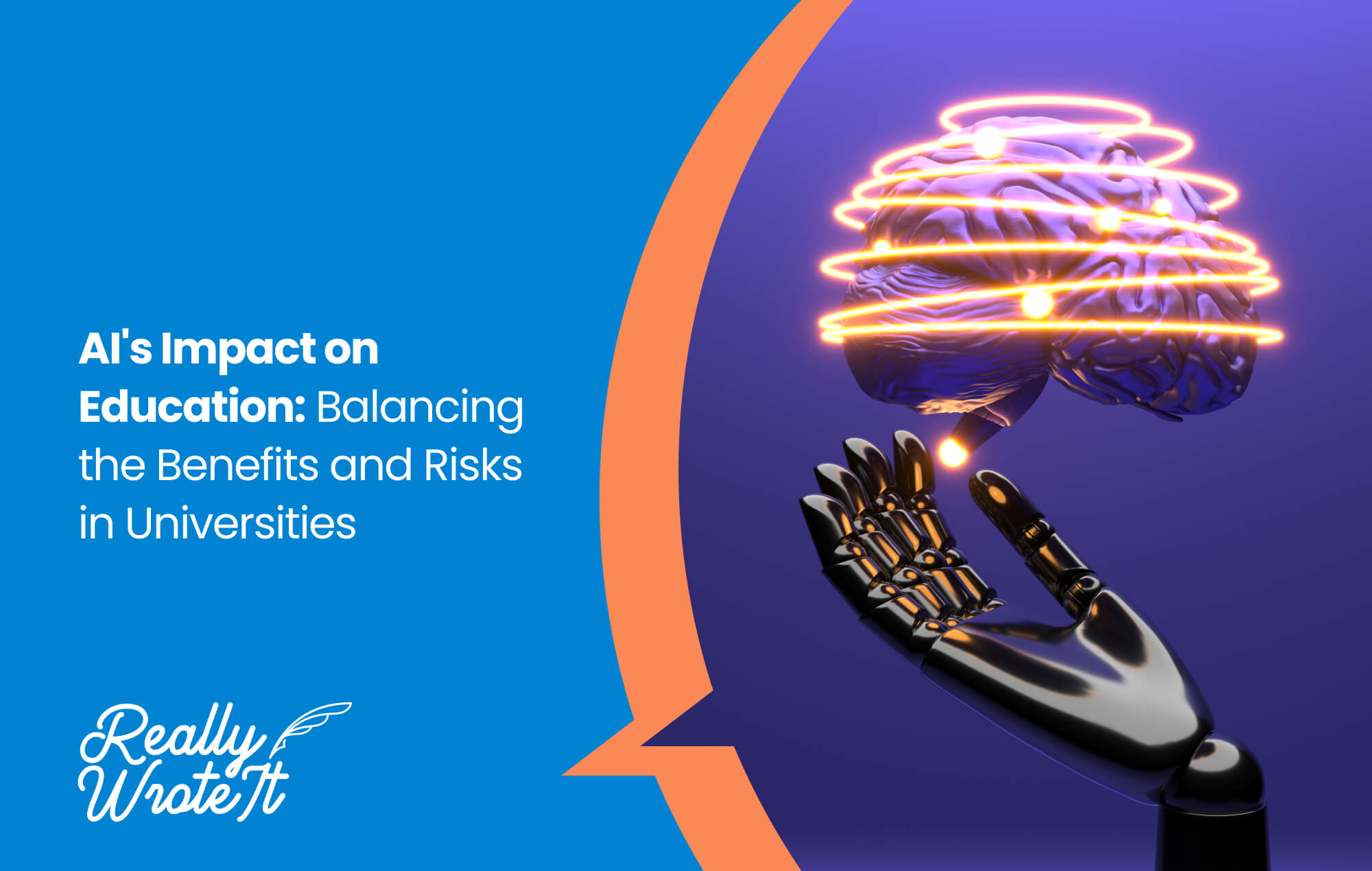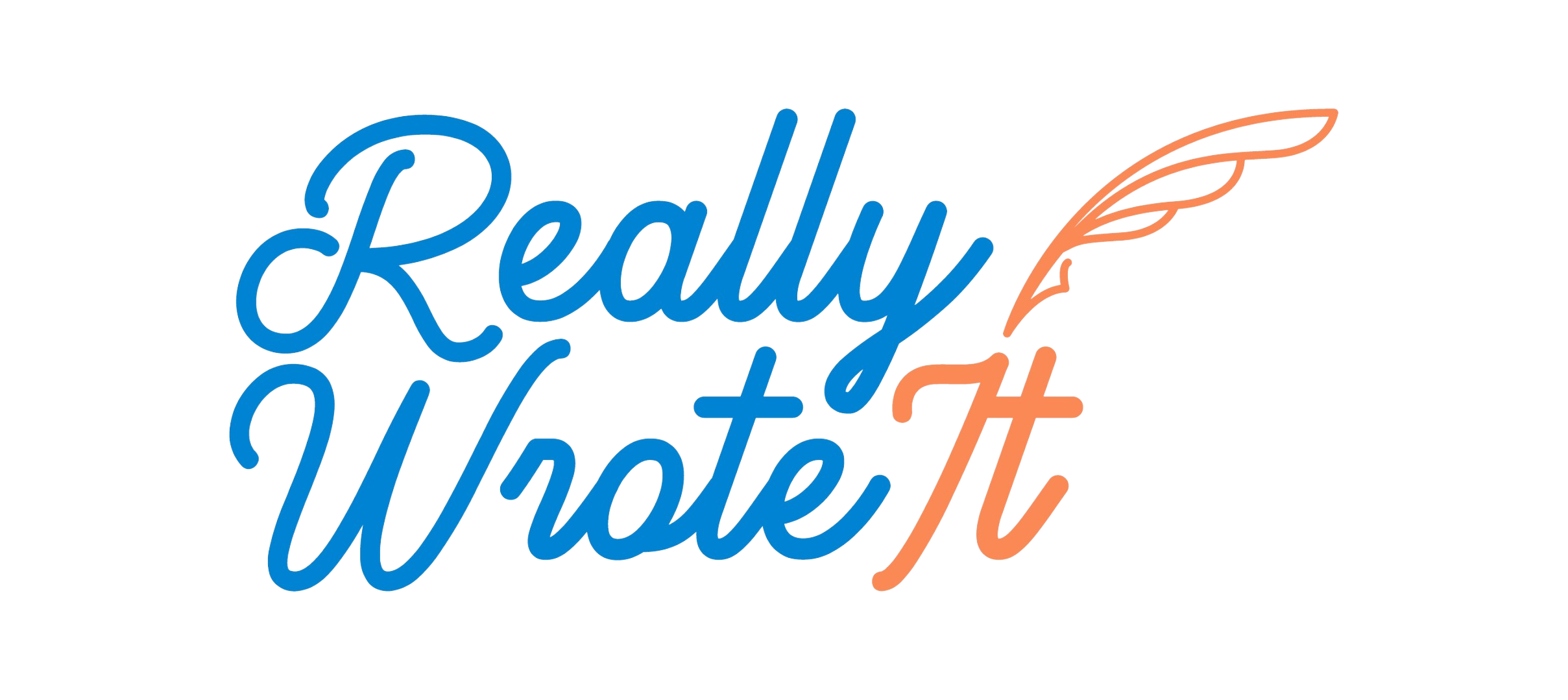Despite fears of artificial intelligence (AI) leading to an increase in students delivering inauthentic work, 99.4% of high education institutions believe that AI will be imperative in improving their competitiveness. This is thanks to the powerful advantages that AI brings. However, there are many risks in introducing AI into academia, too.
This article discusses the benefits and challenges of AI in education while offering a convenient way to mitigate the risks associated with the technology. Keep reading to learn more about balancing the advantages and potential threats of AI in university education.
Key Stats On AI In Education
Before we get started, let’s take a look at some key statistics you should consider regarding AI in education:
- Test scores increase by 62% through AI adaptive learning
- Overall student grades can increase by 32% thanks to AI learning
- AI can accurately predict a student’s final grade with 80% accuracy
- Grading time is reduced by 70% when using AI
It’s important to note that the efficacy of AI in the above cases strongly depends on how AI is used. For example, student grades may only increase by 32% as a result of having AI write essays on their behalf. Conversely, student grades can increase through a better-optimized learning experience as a result of AI.
AI Tools to Look Out For
AI tools are everywhere nowadays. In fact, it’s likely you’ve used AI-driven technologies without even realizing. So, here are some popular AI generators to look out for.
ChatGPT
There are many AI text generators available, but with 25 million daily visitors, the most popular of which is Open AI’s ChatGPT. ChatGPT is capable of human-like conversation and text generation based on context and online data. This means that users can train ChatGPT to understand their requirements and expectations better, resulting in higher quality content generation.
BingChat
Unlike ChatGPT, BingChat is not focused on content generation but, instead, is a search engine assistant available within the Microsoft Edge web browser. Its purpose is to make web searches more convenient by providing AI-generated search results. After generating search results, users can then chat with BingChat and ask it to offer more information, including large chunks of AI-generated text.
Jasper.ai
Unlike ChatGPT and BingChat, Jasper.ai is not a chatbot; its purpose is to help users generate content. Jasper.ai offers tools for heading generation, article outline creation, sentence rewriting, and general text generation, all powered by artificial intelligence. The platform, formerly known as Jarvis.ai, provides plenty of useful tools to help users write essays but is not geared toward whole text generation.
Benefits of AI In Education
AI in education has gained somewhat of a negative connotation in recent years, and though it’s true AI highlights several issues, it also comes with many benefits. Here are just a few to consider before writing off AI in education completely.
Administrative Automation
There are a multitude of administrative tasks required for the daily smooth running of a university, and they take up a large amount of resources. AI applications can be used to ease the stress of administrative tasks through automation. For example, using an AI-driven scheduling application like Motion allows employees to optimize their daily agenda, increasing productivity.
Personalized Learning
AI platforms that are capable of understanding context, like ChatGPT, can be used to create personalized learning experiences tailored to individual students’ needs and progress. For example, using AI, universities can create pop-quiz questions with specific individual strengths and weaknesses. Not only would this reduce the chance of cheating, but it will also give educators a better picture of each student’s progress.
Home Learning
AI is also an excellent tool for home learning. For instance, instead of having to spend hours researching a topic, users can simply ask ChatGPT, or another chatbot, to provide them with a solid summary of information. This capability, mixed with personalized learning options, makes AI an invaluable tool for home learning.
Challenges of AI in Education
Of course, there may be some advantages to AI in the education industry, but there are many challenges, too. Here are just a few of the major issues caused by AI in education.
Accidental Plagiarism
AI text generators draw information from online sources. This means that when a user uses ChatGPT to generate an essay, it’s likely made up of several different articles and data sources, rewritten for originality. However, in some cases, certain phrases and paragraphs may be flagged by plagiarism detection software for not having been rewritten thoroughly by the AI.
So, although students might believe that the content generated by AI chatbots is completely original, in some cases, it’s not. As a result, students could be accused of plagiarism without intentionally copying another author. Additionally, most AI text generators don’t provide reference links, making it difficult to trace work.
Inauthentic Work
AI text generators allow users to produce articles and essays without having to write them themselves. The widely accessible nature of AI text generators means that there is a good chance many returned essays will have been written using AI to some degree. In fact, one study revealed that over 50% of students plan to use AI in their work, regardless of the sanctions imposed by universities and schools.
As a result, the rate of AI-generated essays is likely to rise, and with it, the quality of student essays will decrease. This is because, although AI applications are growing in power and sophistication, they are still unable to match the creative thinking of humans. AI essays may appear human, but they do not reflect the capabilities of real students.
Data Bias and Inaccurate Information
As AI text generators draw information from online sources, they are prone to data bias as a result of skewed information found on the web. This means that when trying to present a well-balanced argument, students may inadvertently succumb to biases when using AI. Additionally, data bias could lead to students submitting essays that contain values they don’t agree with.
It’s not just a data bias that can be caused by AI gathering data from online sources; it can also lead to inaccurate information. This is because there’s no review process in place to ensure data fed to AI text generators is accurate. As a result, students using AI may return essays with numerous factual errors.
How We Can Help Mitigate the Risks of AI
At Really Wrote It, we’ve created an online application that allows your university or educational institution to mitigate some of the risks associated with AI text generation. We’ve achieved this by developing an anti-AI word processor that tracks progress as users write their essays, timestamping every keystroke. You’re even able to playback a real-time sped-up recording of the essay writing process from start to finish.
Our anti-AI word processor ultimately means that students can prove the authenticity of their work, and your institution can discourage the use of AI. If you’re interested in learning more about the Really Wrote It online application, check out our services page or get in touch with us today.

